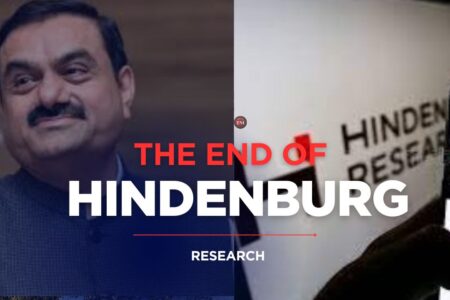In a surprising turn of events, Hindenburg Research, the activist short-selling firm that shook global markets with its scathing reports on corporate misconduct, has announced its closure. The firm, founded in 2017 by Nathan Anderson, gained prominence for uncovering high-profile frauds and financial misdeeds. However, its legacy will forever be intertwined with its explosive allegations against the Adani Group, one of India’s largest conglomerates.
The Rise and Impact of Hindenburg Research
Hindenburg Research built its reputation on exposing corporate fraud and unethical practices, often targeting high-profile companies. The firm employed forensic financial analysis and extensive research to uncover alleged wrongdoing. Some of its notable investigations included Nikola Corporation, where it accused the electric vehicle company of staging a promotional video, and Clover Health, which it alleged had failed to disclose a Department of Justice investigation.
However, the Adani Group report released in January 2023 marked the pinnacle of Hindenburg’s influence. The firm accused the Adani Group of stock manipulation, improper use of offshore entities, and accounting fraud. The report, titled “How The World’s 3rd Richest Man Is Pulling The Largest Con In Corporate History,” sent shockwaves through global financial markets. The fallout was swift: Adani’s stock prices plummeted, erasing more than $100 billion in market value, and the group faced intense scrutiny from regulators and investors alike.
The Adani Group’s Response
The Adani Group vehemently denied the allegations, labeling them as baseless and malicious. It accused Hindenburg of launching the attack to profit from short positions. Despite the rebuttals, the damage to Adani’s reputation and market standing was significant. The controversy also sparked debates about the role and ethics of activist short-sellers in financial markets.
Hindenburg’s Closure: A Legacy of Disruption
On January 15, 2025, Hindenburg Research announced its closure, citing a shift in focus for founder Nathan Anderson and the team. In a statement, Anderson reflected on the firm’s journey, emphasizing the importance of holding powerful corporations accountable. The closure marks the end of an era for activist short-sellers, a group often viewed as market watchdogs by some and opportunists by others.
Hindenburg’s departure leaves a void in the financial ecosystem. While its methods and motives were frequently questioned, its investigations undeniably brought transparency to opaque corporate practices and spurred critical conversations about corporate governance.
The Rebound of Adani Shares
Following the closure of Hindenburg Research, Adani Group’s shares witnessed a marked recovery. Investors interpreted the firm’s shutdown as the end of a significant overhang on Adani’s reputation. Coupled with strategic initiatives such as robust debt management and new partnerships, the absence of Hindenburg’s critical lens contributed to renewed market confidence. The rebound underscored the resilience of the Adani Group and its ability to weather intense scrutiny.
While the initial impact of the Hindenburg report was devastating, the Adani Group’s shares have shown resilience. By mid-2024, several Adani companies, including Adani Green Energy and Adani Ports, had regained much of their lost value. Strategic moves such as debt repayment, securing new investments, and strengthening corporate governance helped rebuild investor confidence. The Adani Group’s recovery underscores its underlying business strengths and its ability to navigate crises.
The Aftermath and Broader Implications
The Hindenburg-Adani saga highlights the delicate balance between corporate accountability and market stability. It raises pertinent questions about the role of activist short-sellers: Are they champions of transparency or agents of chaos? The debate is unlikely to subside with Hindenburg’s exit.
For the Adani Group, the road ahead involves continued efforts to rebuild trust and deliver value to stakeholders. For the global markets, the closure of Hindenburg Research signals a potential shift in the dynamics of financial activism.
As the curtains fall on Hindenburg Research, its impact on the financial world remains undeniable. Whether one views its actions as audacious or antagonistic, the firm’s role in reshaping narratives around corporate accountability will not be forgotten.

